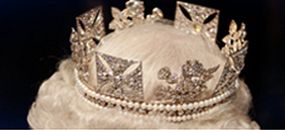Wisdom sometimes lies in knowing when to let someone else take over. The Netherlands’ House of Orange has applied it time and again.
 ADVERTISEMENT
ADVERTISEMENT
 ADVERTISEMENT
ADVERTISEMENT
Queen Beatrix, having said that only by wanting to serve could modern royalty make sense, bows out for her son, just as her mother made way for her, and her grandmother handed over to her mother.
Beatrix is getting out when she is 75. Willem-Alexander has just turned 46. Since 1983, the rule in the Netherlands is one of absolute primogeniture, inheritance by the eldest offspring, male or female.
This relatively modern, less traditionally rigid approach to passing the crown along – less misogynist – is matched in flexibility by the business of thinking of abdication as natural as well.
The two sides of the European monarchy debate- read our special dossier
That thinking is still the exception in Western Europe, which has seven kingdoms, one grand duchy and two principalities – all of them hereditary constitutional monarchies.
Queen Elizabeth II, who’s had her throne since 1952, is 87, and has never given an inkling that she would let her son Charles have it while she is still alive. He’s now 64.
But the British monarchy is in the process of adopting the absolute primogeniture rule, which will put William and Kate’s coming child on the waiting list, whether a boy or a girl.
Spain’s King Juan Carlos I isn’t in a hurry to abdicate, in spite of his failing health – four surgical operations in the space of a year – or the wish of more than half his subjects to see him step down.
Juan Carlos de Bourbon is 75 and has reigned since 1975. Son Felipe, 45, is king-in-waiting, even though he has a sister who’s older: Elena. Spain, hover, is planning to move on from the male-preference system because it conflicts with the constitutionally established principle of gender equality.
Abdication isn’t taboo in the Kingdom of Belgium, but it’s up to the sovereign, Albert II, to decide – crowned 19 years – but 46 percent of the Belgians say they think it would be a good idea because of his health.
Albert is about to turn 79 in June, and his son Philippe is 53.
Absolute primogeniture has been on the books in Belgium since 1991.
Same further north. Sweden has had it since 1980. The Swedish royals don’t rule out abdication in principle but they aren’t chafing at the bit. King Carl XVI Gustaf, 67, will be succeeded by his daughter Victoria, 35.
In 1990, Norway adopted absolute primogeniture, but it wasn’t made retroactive. So, today’s King Harald V, 76, will be followed by son Haakon, 39. He is the heir apparent even though he has an older sister: Märtha Louise.
Denmark went for absolute primogeniture in 2009. Queen Margrethe II, 73, has been on the throne since 1972, and doesn’t plan to abdicate. Fredrik, 44, if he does like his mother and most other monarchs, when he gets on will stay for life.
Uneasy lies the head that wears a crown
Read our dossier on Europe’s monarchies











